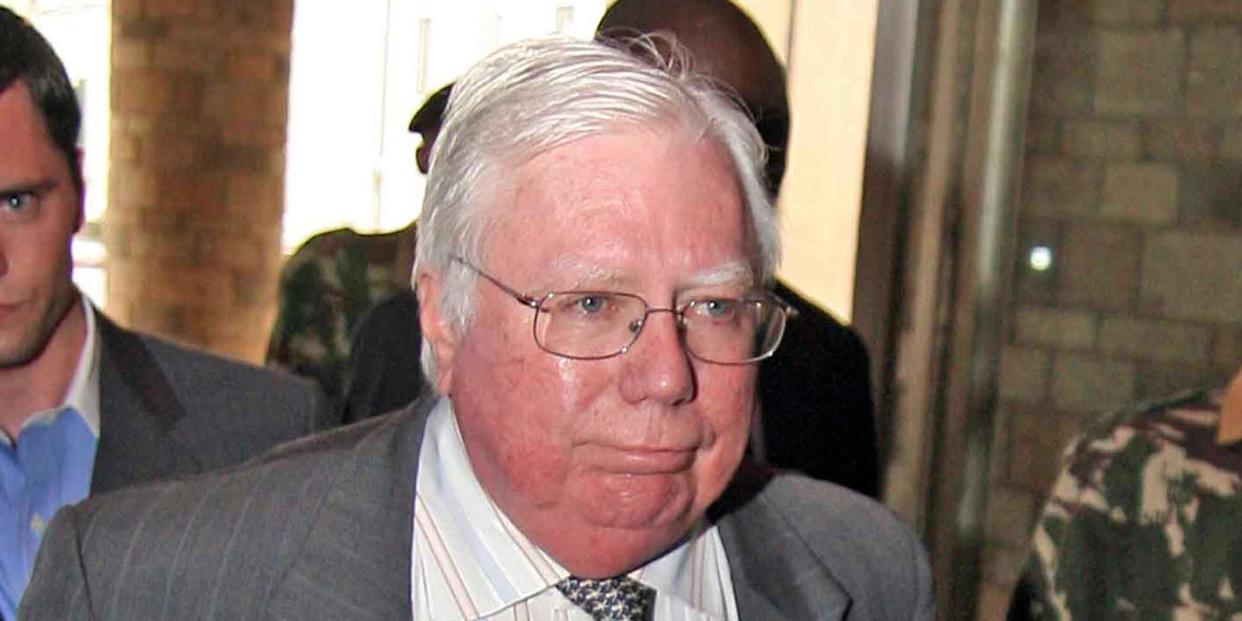DOJ began investigating a doctor promoting unproven COVID-19 treatments after Roger Stone's former associate accidentally emailed a federal prosecutor instead of the doctor

The Justice Department began investigating a New York doctor pushing unproven coronavirus treatments after a far-right conspiracy theorist accidentally emailed a federal prosecutor instead of the doctor.
The Washington Post reported that the conspiracist, Jerome Corsi, meant to email the doctor, Vladimir "Zev" Zelenko, but instead emailed Aaron Zelinsky, a prosecutor who worked with Robert Mueller and spent months investigating Corsi as part of the Russia probe.
Zelinsky reportedly emailed Corsi back and requested all his communications with Zelenko, who promotes the anti-malarial drug hydroxychloroquine to treat coronavirus.
There is no robust evidence that the drug is an effective coronavirus treatment. One Brazilian study was halted after patients died.
And the biggest patient study yet, conducted in the US, showed there was no benefit to using the drug to treat coronavirus.
The Justice Department is prioritizing cases related to coronavirus misinformation, fraudsters, and people who promote fake, dangerous, or unproven treatments for the virus.
Jerome Corsi, a far-right conspiracy theorist and former associate of the longtime GOP strategist Roger Stone, wanted to email Vladimir "Zev" Zelenko, a New York doctor whose work has been discussed on Fox News and who has communicated with the White House about using hydroxychloroquine as a treatment for coronavirus.
But instead of Zelenko, Corsi accidentally emailed Aaron Zelinsky, a federal prosecutor who worked on the former special counsel Robert Mueller's team and spent months investigating Corsi and others, The Washington Post reported Friday.
Zelinsky responded to Corsi's email by reaching out to Corsi's lawyer and asking for all of Corsi's communications with Zelenko, according to The Post. The Justice Department is now investigating all of Zelenko's communications.
Zelinsky works at the US attorney's office in Maryland which, along with US attorneys' offices, has been tasked with prioritizing cases related to coronavirus misinformation, fraudsters, and people who promote fake, dangerous, or unproven treatments for the virus. The Justice Department is reportedly scrutinizing Zelenko's communications as part of that mandate.
Corsi said he and Zelenko are working together on a website that will connect people with doctors. He added that he and Zelenko have acted properly and he will cooperate with the inquiry. Corsi handed over all his communications with the doctor, including text messages, podcast materials, and marketing materials for the website.
The Post reported that Corsi revealed details of the email mix-up on an episode of his daily podcast and in a YouTube video he posted late Thursday after the paper reached out to him.
Zelenko frequently promotes hydroxychloroquine as a treatment for coronavirus. It is an effective anti-malarial drug, but despite being repeatedly touted by President Donald Trump as a potential cure for the virus, there's no robust evidence that it would work.
A controversial French study found a combination of drugs that included hydroxychloroquine may be effective in combating the coronavirus. And although the study hadn't yet been replicated, it was repeatedly mentioned on Fox News.
Subsequent studies have suggested that such anti-malarials have no impact on the coronavirus. One Brazilian study was halted after patients died. And the biggest patient study yet, conducted in the US, showed there was no benefit to using the drug to treat coronavirus.
Last week, the Food and Drug Administration, warned doctors against using hydroxychloroquine outside of a hospital or clinical trial, citing reports of "serious heart rhythm problems."
Gregory Rigano, a lawyer who said he's working with Zelenko, told The Post on Thursday that federal prosecutors have not contacted him or his client, and that is not aware of any potential law enforcement interest in Zelenko.
"It's not something I'm familiar with," Rigano said. "We're just saving people's lives that have coronavirus and getting rid of this virus from America as soon as possible."
In his YouTube video, Corsi showed the email he said he accidentally sent to Zelinsky, in which he wrote that Zelenko had "an FDA approved randomized test of HCQ underway," referring to hydroxychloroquine.
Corsi said that Zelinsky then went to a government website that displays approved clinical trials and found no mention of or reference to Zelenko. Corsi said he later asked Zelenko about it, and Zelenko replied that his study was approved by an internal hospital panel.
"I pointed out to Zelenko, 'But it's not registered as an FDA test, and you can't say it is,' " Corsi said Thursday on YouTube, The Post reported. He added that he didn't think Zelenko was trying to dupe anyone but instead does not understand what it means to have an FDA-approved test.
"I did nothing wrong," Corsi said. "Zelenko made a mistake. He's got no case. And we're following all the rules."
Corsi made headlines during the Russia investigation after he was named as "Person 1" in the Justice Department's indictment against Stone.
In November 2018, Corsi said he expected to be charged in the investigation, which examined Russia's interference in the 2016 US election and whether members associated with the Trump campaign conspired with Moscow to tilt the race in Trump's favor.
A few days after saying he expected to be indicted, Corsi confirmed he had entered plea negotiations with Mueller's team. But last April, The Post reported that Corsi's lawyer, David Gray, said investigators were "dumbfounded" by his inconsistent testimony, and Gray was also concerned by it.
According to Gray, investigators ultimately decided after extensively interviewing Corsi that they could not "use any of this." Corsi himself recalled telling investigators, "Sometimes I can't tell if I remembered or invented."
Shona Ghosh contributed reporting.
Read the original article on Business Insider

